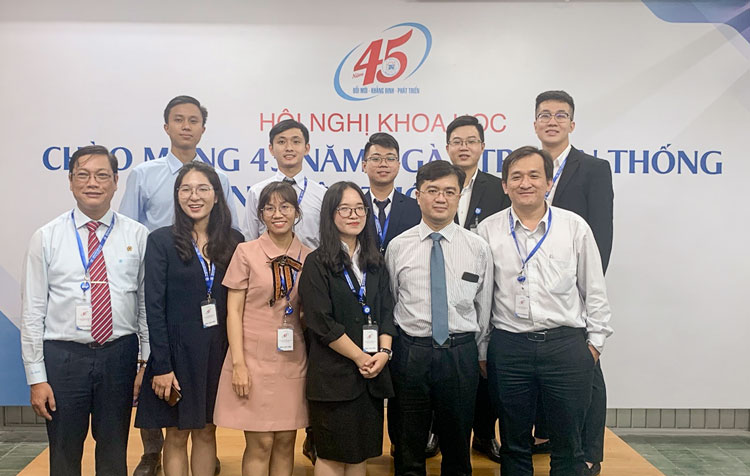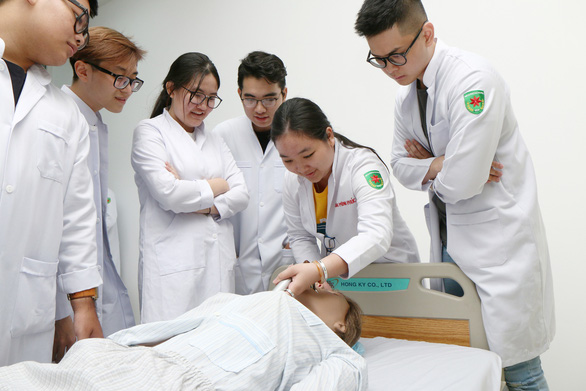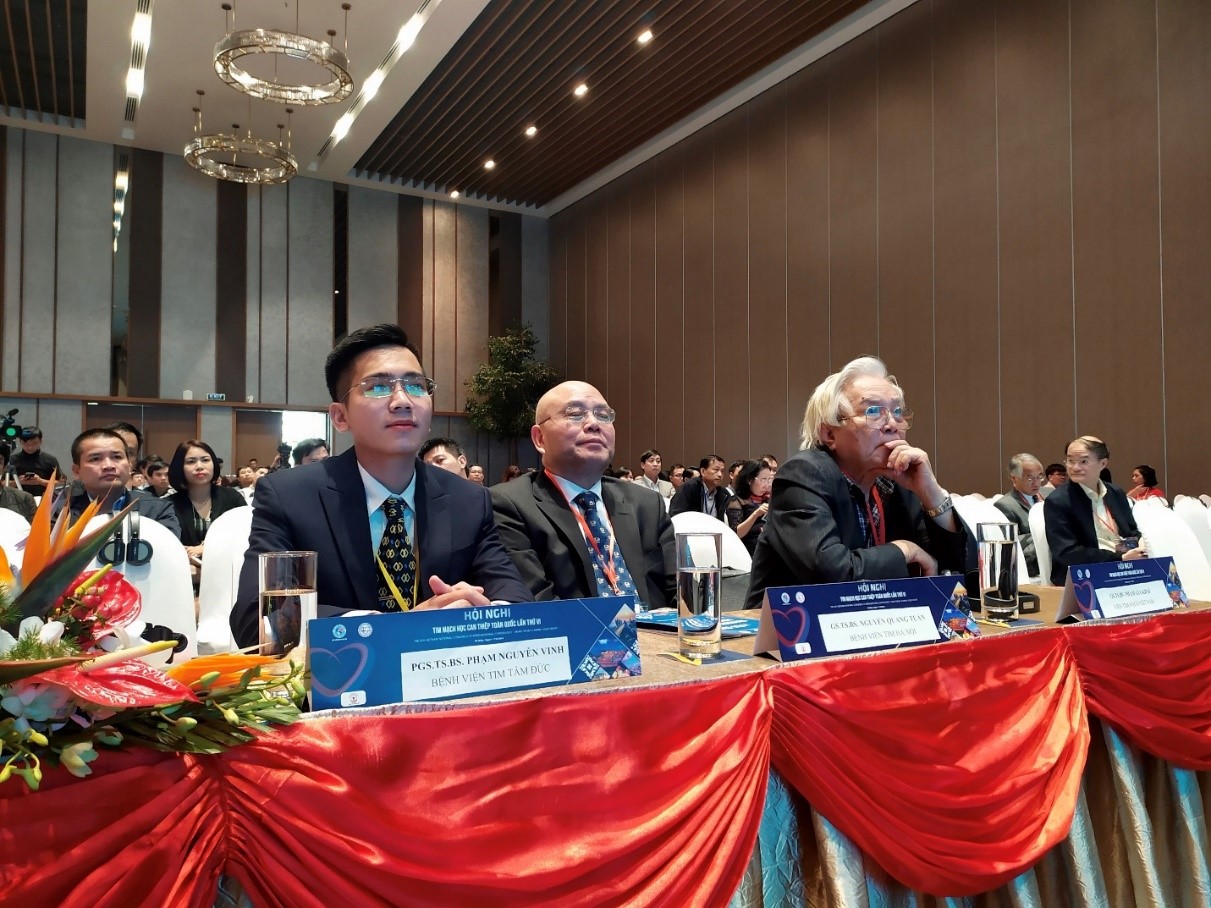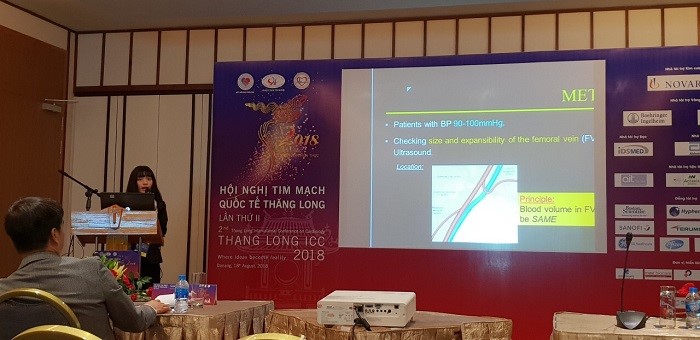Five Abstracts submitted by the TTU School of Medicine Research Club were Accepted for Presentation at the American Heart Association Annual Scientific Meeting, November 13-15, 2021 in Boston
The American Heart Association (AHA), the European Society of Cardiology (ESC), and the American College of Cardiology (ACC) are the three largest cardiology professional societies in the world. The 2021 AHA Scientific Sessions will be held in Boston, MA, the USA from Nov 13, to Nov 15, 2021. New results of clinical trials, new clinical practice guidelines, new research… will be presented at this conference.
In June, TTU School of Medicine (SOM) faculty and students from the SOM Scientific Research Club submitted 5 abstracts for oral and poster presentation. On Aug 12, 2021, the Scientific Committee of the AHA announced the results. All 5 abstracts of the TTU SOM research team were accepted for presentation. These projects have been the results of strong collaboration between TTU School of Medicine, Thong Nhat hospital, Hanoi Heart Hospital, Cho Ray Hospital, Methodist Hospital, Merrillville, IN, USA, Legnano Hospital, Legnano, Italy, and University of Ferrara, Ferrara, Italy.
The 5 abstracts presentations will be recorded and posted so the attendees can follow the links and listen to the presentations. The following paragraphs are brief introductions to their abstracts.
First, 4th-year medical student Huynh Ngoc Phuong Thanh will present: Prolonged Coronary Arterial Phase and Recurrent Ischemia are Hallmarks of Repeat Heart Failure And Sudden Cardiac Death in Patient With Dilated Cardiomyopathy And Patent Coronary Arteries An Angiographic And Machine Learning Analysis
In this study, the hypothesis was: For patients with dilated cardiomyopathy and patent coronary arteries, could the combination of coronary slow flow and ischemia is a predictor of recurrent heart failure (HF) and sudden cardiac death (SCD)?

Second, 4th-year medical student Le Xuan Minh Phuc will present Excessive Slow Flow and Thick Boundary Layers Cause Non-ST Segment Elevation In Patients With Patent Coronary Arteries.
In this research project, the hypothesis was that flow abnormalities disrupt the delivery of oxygenated blood to the myocardium. Our strategy is to use today’s practice of fluid mechanics to unlock the mechanism of non-ST Segment elevation myocardial infarction (non-NSTEMI) and patent coronary arteries. The results showed that in non-STEMI and patent coronary arteries, severe slow flow and prolonged retention of thick boundary layers were the culprits. Besides the ischemia caused by delayed delivery of new blood to the myocardium, the prolonged retention of thick boundary layers could prevent the intima from absorbing newly oxygenated blood and provoked local ischemia. These new discoveries open new management and preventive options for patients with non-STEMI and patent coronary arteries.

Third, 4th-year student Vuong Hong Ngoc will present What Causes Speedy Growth (Within 3 To 6 Months) Of Vulnerable Plaques In Acute Coronary Syndrome: An Angiographic And Machine Learning Analysis.
In this study, the question was that in patients with fast tract ACS when a normal segment becomes severely stenotic in a matter of 3 to 6 months, what kind of abnormal flow could trigger this speedy growth of a plaque?

Fourth, 6th-year medical student Truong Trung Duc will present Uncontrolled Systolic Hypertension Exaggerates The Effect Of Water Hammer Shock From A Retrograde Direction While Diastolic Hypertension Aggravates The Injury From An Antegrade Direction: New Mechanism Of Coronary Artery Disease By Angiographic And Machine Learning Investigation.
In this research, our hypothesis was based on the damages induced by flow abnormalities in pipes and speculated that flow disturbances start the atherosclerotic process. Our strategy is to use today’s practice of fluid mechanics to unlock the mechanism of HTN on coronary plaques. The results showed that uncontrolled diastolic HTN exaggerated the strength of antegrade flow and turbulence DISTAL to the collision/bifurcation site while uncontrolled systolic HTN intensified the retrograde flow and turbulence PROXIMAL to the collision/bifurcation site. Both inflicted damage on the intima and started the atherosclerotic process.

Fifth, 5th-year medical student Ly Ngoc Tuong Vi will present Water Hammer Shock Causing Rupture of Vulnerable Cap of Culprit Lesions in Acute Coronary Syndrome: An Angiographic and Machine Learning Analysis
In this study, based on the hydraulics study, in a setting of a tank and draining pipe, if the valve at the distal end of the pipe is open, the fluid flows normally. If the valve closes abruptly, the flow next to the valve stops. However, the fluid from the tank continues to flow forward and can collide with the distal stationary fluid. This is called water hammer shock. Could the same event happen in coronary arteries? The contraction of the left ventricle (LV) is similar to the abrupt closure of a valve, stopping the myocardial capillary flow. Could the systolic LV contraction trigger water hammer shock?

Along with efforts and interests in doing researches, the SOM Scientific Research Club offers medical students more opportunities to experience and challenge themselves to participate in national and international scientific conferences.














